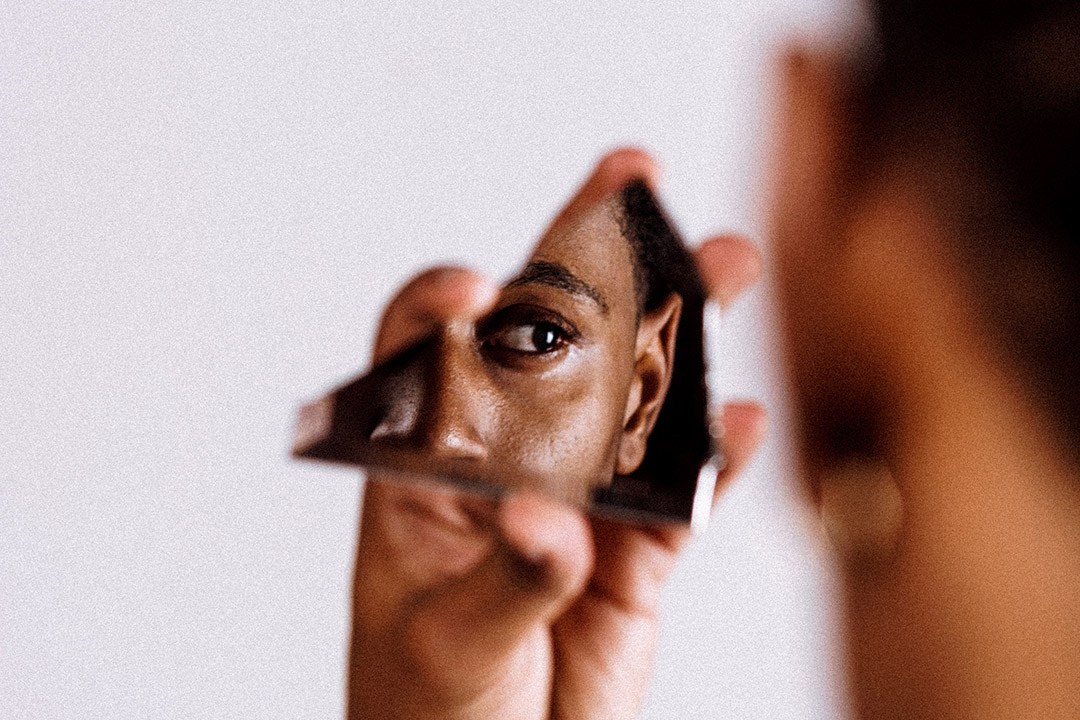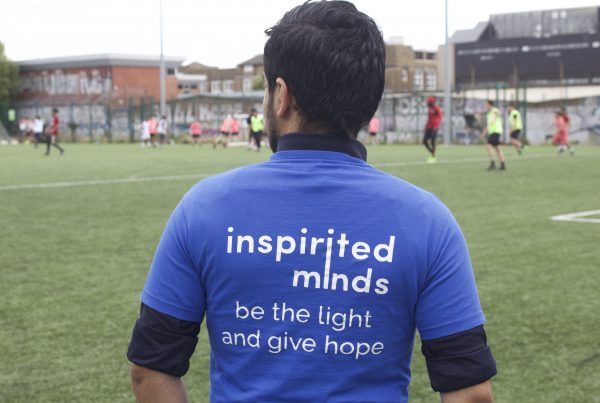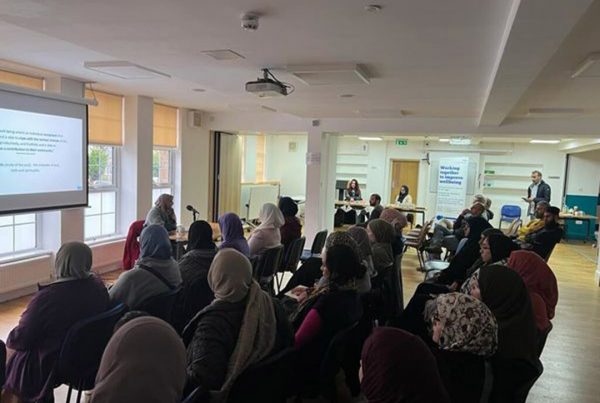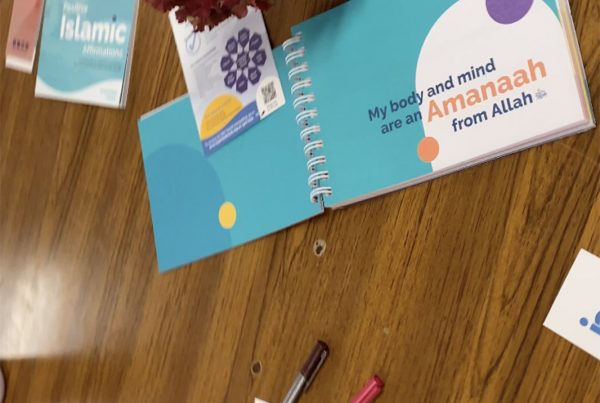A Muslim perspective on masculinity and mental health
How many times have you heard people say ‘real men don’t cry’ or ‘man up!’ ?
Unfortunately, such remarks are what many males are conditioned to believe from a young age. The archaic connotation between a male displaying emotion and weakness is dangerous for many reasons. There has been some recognition of this more recently, due to heightened awareness about male mental health.
- Research carried out by the Samaritans in the UK highlights that men are three times more likely than women to take their own life (Samaritans, 2019). Therefore, it is important to note how unhealthy stereotypes of how a ‘real man’ should behave are harmful and could be contributing to men feeling more helpless and isolated.
- Further research by the Priory group found that 40% of men reported that they have never spoken to anyone about their mental health because they are too embarrassed or because there is stigma surrounding this (Priory Group, 2018). There is often an expectation for males to suffer in silence, to the point where many may feel uncomfortable sharing their feelings, even to those closest to them.
Amidst the various debates on how a man should behave in society, as Muslims, we have been blessed with the greatest exemplar, our Prophet Muhammad ﷺ.
Compassion and Empathy
The character of the Prophet ﷺ was warm and approachable, such that people would often seek advice from him. Even before the Prophet ﷺ received revelation, he was known as ‘Al-Amin’ (The Trustworthy). There are many ahadith of the Prophet ﷺ which focus on compassion and empathy.
“The believers in their mutual kindness, compassion and sympathy are just like one body. When one of the limbs suffers, the whole body responds to it with wakefulness and fever”.
[Al-Bukhari and Muslim]
This demonstrates the importance of unity and consideration within the Muslim community, and how others’ pain should directly affect us.
“Whoever walks with his brother regarding a need until he secures it for him, then Allah Almighty will make his footing firm across the bridge on the day when the footings are shaken.”
This powerful statement shows how much the Prophet (PBUH) focused on helping those around him, and the value of such an act in terms of good deeds on the scale on the Day of Resurrection.
Vulnerability and Tawakkal
Traditionally, a ‘macho male’ or bravado trope has existed, which is the idea that they are invincible, and nothing affects them. However, it is important to acknowledge that the Prophet ﷺ was also human and experienced hardship and grief. One particularly difficult passage in his life was ‘The Year of Sorrow’ in which he lost his beloved uncle Abu Talib (RA) and his wife Khadija (RA), both of whom provided crucial support since he received the first revelation.
During an already difficult time, the Messenger ﷺ decided to go to Taif to give Dawah (spread the message), only to be ridiculed and have stones thrown at him. In this moment of dejection and loneliness, he made a sincere Dua (supplication) to Allah (SWT):
“To You, My Lord, I complain of my weakness. As long as you are not displeased with me, I do not care what I face. I would, however, be much happier with Your Mercy, to you I submit until I earn Your Pleasure. There is no power and might except by You.”
This extremely moving Dua represents the Sabr (patience) and Tawakkul (complete reliance on Allah (SWT)) that the Prophet ﷺ demonstrated which provided him with the resilience to carry on, rather than to despair. Even after such a disheartening ordeal, the Messenger’s main concern was for Allah (SWT) to be pleased with him and his efforts, and to gain His Mercy. Furthermore, Allah (SWT) responded to the Prophet’s calls by sending angel Jibraeel to aid him:
“O Muhammad, I will let the mountains fall on them.”
[Sahih Al-Bukhari]
The Prophet (PBUH) instead responded by saying that he would pray for Allah to guide this group’s descendants to be believers. This is another learning point for Muslims overall, but also one which challenges what true strength is when referring to manhood. During a time where the Messenger (PBUH) had every reason to choose revenge, but he chose to extend mercy rather than having a reactive response. This also depicts that feeling a range of emotions is a human experience, which even the greatest man in history felt, and that ultimately, there will always be relief in turning to our Creator.
Self-control and Emotional management
Anger is another trait which has often been associated with male temperament, where phrases such as “short fuse” or “hothead” may be used, further normalising such behaviour. However, Abu Hurairah reported:
“The strong are not the best wrestlers. The strong are only those who control themselves when they are angry.”
[Sahih Al-Bukhari]
“A true believer does not taunt, or curse, or abuse or talk indecently.”
[Sunan al-Tirmidhi]
This demonstrates that while anger may be a natural reaction to events in life, our ultimate strength lies in self-control and dealing with this emotion in the correct way. In this lies another lesson to be mindful of, particularly in the context of relationships, as males may seek to assert control and do so through becoming angry or abusive.
As someone who works in the field of domestic abuse, unfortunately Muslims are not exempt from such experiences. The Prophet ﷺ was the best to his wives and said during his final sermon “the best of you are those who are best to your wives” [At-Tirmidhi], placing specific importance on treating women well.
Affection and love
Not only was the Prophet ﷺ a model example of a husband, he also shed insight on how parents should behave towards their children.
At a time when people did not openly show love to their children, a man saw the Prophet ﷺ kiss his grandson and said, “I have ten children, I have never kissed any of them.”
In response, the Prophet ﷺ said “he who does not show mercy will not receive mercy.”
[Sahih Muslim].
Even today, many parents and particularly fathers find it uncomfortable to express affection with their children, perhaps because they did not experience this, or they view their role to be that of simply a disciplinarian. However, the Prophet ﷺ showed affection to children, which has the potential to combat generational difficulties in families.
These outdated generalisations and labels of how a man should behave are not in line with the teachings of our faith. People often say we need to redefine masculinity, but arguably the true definition of masculinity needs to be rediscovered and reinforced, from the life of our Messenger Prophet Muhammad ﷺ. What better example of manhood exists?
Perhaps in emulating this example, there would be safe and supportive systems in place for males within their close circles and community, encouraging them to share their struggles, without feeling ashamed. Perhaps more males could learn the importance of being present, empathetic, and emotionally intelligent, to help a brother in need, even if this means doing less and listening more, or encouraging them to seek further support where needed.
May Allah (SWT) ease the suffering of those who are struggling, allow us all to strive to follow the best example and to remain on the straight path, Ameen.




